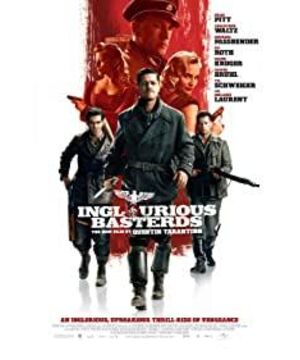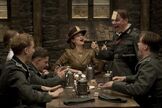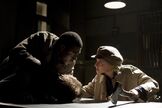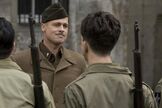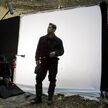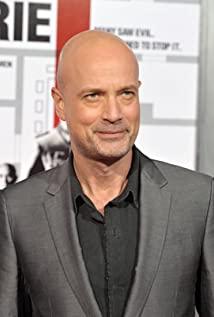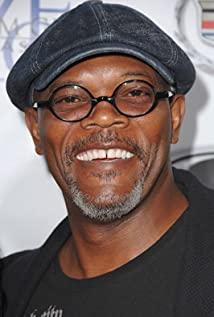I was so excited when watching "Inglourious Basterds", this was the thought in my mind all the time.
Why did you say this? Quentin never left. His last work, Death Proof, is only 2 years old.
But the shameless bastard’s viewing experience is so different from "Death Proof". Yes, that's right, there are buckets of blood, and there are always iconic scenes of violence. However, with German, French, and Ennio Morricone's soundtrack, everything is different.
The French prairie at the beginning, the melodious music and the 360-degree rotating lens almost lied to me. I thought Quentin was about to make a serious historical movie. What a ridiculous idea. Within a few minutes, the SS officer fired intensively with machine guns and told me: You are wrong.
Quentin is still playing with his stitching, but this time it is bolder. He emptied the history of World War II, restructured the story himself, and set the end of the war.
From the officer played by Brad Pitt, I can even see Quentin's shadow: simple and rude, with a bit of wickedness, and persistent self-confidence.
Especially at the end of the whole film, he finished his "work" and said proudly in front of the camera: I think this is simply my best work.
At that moment, Brad Pitt seemed to possess Quentin.
Quentin's self-confidence is not without a source. The story is moved to Europe, and the time is set more than half a century ago. However, the work can still maintain a pure personal style, which is rare in real numbers. What's even more rare is that when dealing with historical subjects, Quentin did not implant his own value judgment, did not give too much mercy, and did not fall into the usual antagonism.
Obviously Quentin is a smart man.
In the film, the "unscrupulous army" led by Brad Pitt, their methods are cruel, even frightening the Nazis. The purpose of their coming to fight in Europe was handled very simply, and it was even easy to think that they were also getting pleasure from the killing. Regarding this group of people, Quentin's treatment has neither humane evaluation nor value judgment, and even slightly comical. Brad Pitt's role in it is rough and funny, but he has to admit that he has his own value system. As he said to the Nazi officers at last: I have been scolded at most, and it is not that I have never been scolded. Then he took a knife and carved a mark on the Nazi's forehead.
Brad Pitt's performance in this film is very surprising. He has a strong American accent and completely lacks the appearance of "the sexiest man in the world", but his appearance and demeanor are very convincing. He was very happy in this year's "Burn After Reading" and "Inglourious Basterds", and the performance in "The Curious Case of Benjamin Button" was affirmed by Oscar nominations. This year's gains and breakthroughs It's impressive. In addition to Pitt, the performances of other actors in the film are also very convincing. The performance of the German colonel was particularly well received. I was particularly impressed by the French farmers in Part 1 and the German officers in Part 3. Both of them are roles with a short playing time, but both have a very delicate level of complex inner activities. It is really not easy for inner drama to be performed here. How would a person choose when he is threatened? Quentin sets up two characters in similar situations but with different endings. A civilian chose to betray and saved his life. The other was an officer. Choosing loyalty means choosing death. The farmer’s life may not be stable, but his conscience must be blamed; the officer’s conscience will not be blamed and his body is dead and unable to be blamed, and he chooses to die to be loyal to a belief, and it is a belief that appears to be sinful. significance? All the value judgments were handed over by Quentin to the audience to complete. There are many tasks he has to accomplish in this film, and there is basically no idle time to make this kind of value judgment.
To say that Quentin is a smart person is reflected in the big story structure. Individuals do not bear historical culpability. This is the most common point of view conveyed in World War II films in recent years. This year's popular "Long Reader" raised such a topic, and Lu Chuan's "Nanjing" also applied this topic. The success of "The Reader" lies in its use of love stories to weaken the sharpness of history. The failure of "Nanjing Nanjing" is that Lu Chuan tried to write about his inability in history with a big human perspective and compassionate love, but his thinking was too messy. A director with wolfish ambitions does not estimate his actual control ability, and at the same time, without a clear idea, what he often surrenders is a gimmicky and random piece of work. As shrewd as Quentin, his own judgment is surprising. Finally, the four heads of state of the Nazis gathered in the cinema, that is, the eggs were packed in a basket. Different people have different assassination plans. The actions of the "unscrupulous soldiers" were similar to suicide attacks. Susanna's plan was to burn the house, and the German captain Hans actually placed the seized bomb under Hitler's seat in order to negotiate terms with the US. . The end result was that every plan was a complete success: the "Jewish Bear" almost sifted Hitler, the explosives under the seats exploded, and the theater was completely burnt. If you think about it, if the success of a certain plan is missing, the ending does not seem to have changed. At the end of Hitler’s death, which faction was responsible for the end of the war? It's hard to tell. Behind this seemingly ridiculous and blackish situation is Quentin's cunning trick: in history, individuals do not bear guilt and do not enjoy glory.
But for the first time writing a European story, Quentin still brought me many surprises. Choosing Ennio Morricone as the soundtrack has already laid half of the success. When the SS officer walked to Pitt, the clear whistle sounded in a trance with the spirit of the old Soviet film, and Susanna in the red dress in the theater looked at the big screen, and the music was swaying like a paradise movie theater. The scene where Susanna and the sniper both die, combined with Ennio Morricone's music, has the urge to make people cry. However, Quentin would never allow this to happen. In the next second, the camera has been given to the unscrupulous miscellaneous monarch, and the sensational old song has also been switched to a dense drumbeat. Many people died in the film, whether it was regret or distress, Quentin did not show mercy. He made everyone's role come to an abrupt end at the best moment. Knowing how to choose and rewind, I think this is the most important essence he has learned from the countless videos he has watched.
ps: I think the poster is too good-looking, with the charm of an old hand-painted poster
http://mercurialgarden.blogbus.com/logs/53641165.html
View more about Inglourious Basterds reviews


